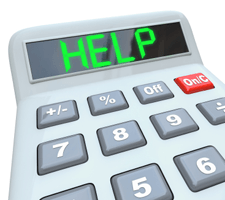Do You Need Debt Help?

Your personal debt-to-income ratio is helpful because it can serve as a benchmark of your financial well-being. A low debt-to-income (DTI) ratio means you have a healthy amount of debt for your income level, while a high DTI ratio means you may be on the verge of financial distress. You can use your DTI ratio to gauge where you are with your finances and what steps you need to take to get where you want to be. Using and knowing your DTI, you are better equipped and more informed about your financial health, so you can take measures to correct potential issues quickly and effectively.
Not every debt problem can be solved on your own. Eventually, you may reach a point where your debt load is too much for you to reduce on your own using traditional means. When this happens, you need to find an alternative that will allow you to get back on the right financial path with the least amount of damage to your credit and your financial future. If you’re currently facing this situation, give us a call at (844) 276-1544 to speak with a certified credit counselor for free. He or she can evaluate your debt and help you find the right solution for your needs. You can also get started online with a request for a Free Debt Analysis.
The Ideal DTI Ratio – 36% or less
Ideally, when you calculate your debt-to-income ratio, you want the number to be at or below 36%. Experts agree a consumer should carry this amount of debt in relation to his or her income level. When your DTI ratio is below 36%, you should have plenty of available cash flow to cover all of the regular expenses in your budget. You should also have enough money left over each month to achieve the 10% savings target that’s recommended for consumers.